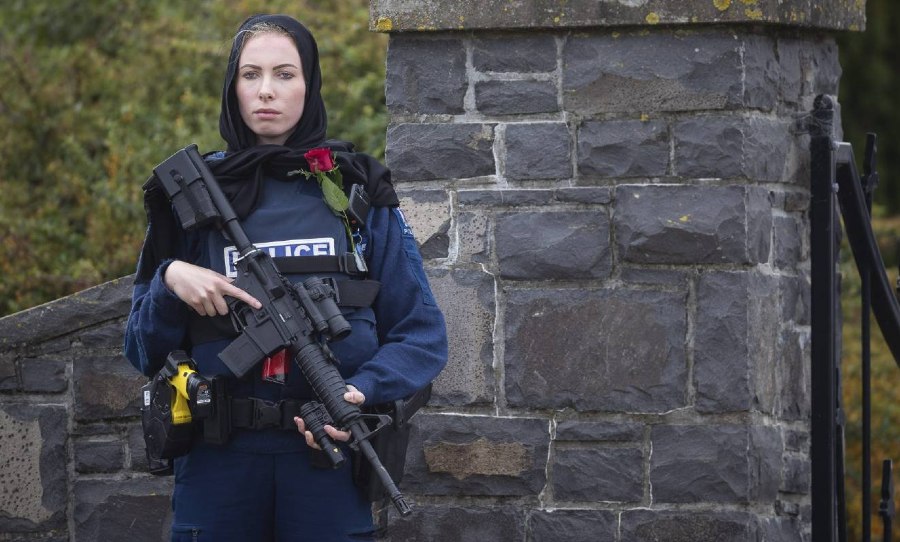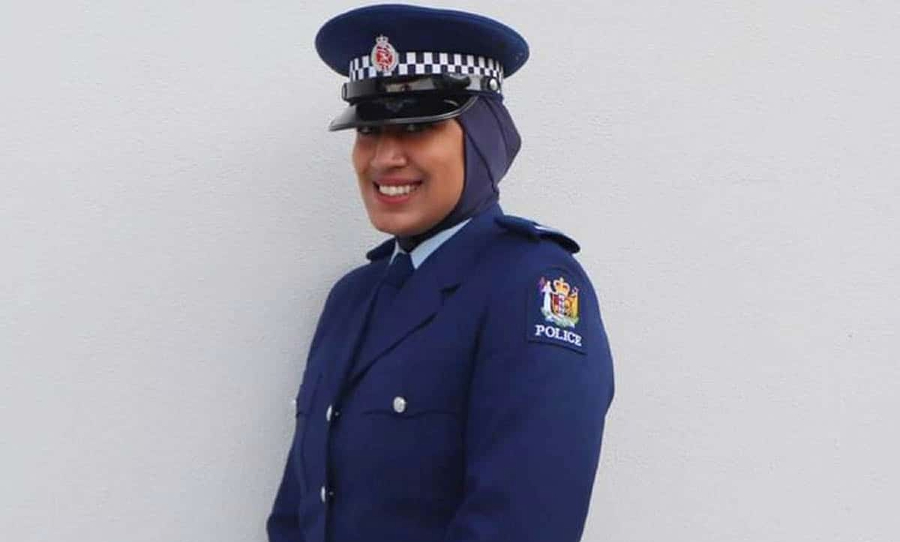The New Zealand police force has announced that it will introduce a Hijab to its uniform for the first time.
Designed by a Muslim student at the Royal New Zealand Police College, New Zealand Police will incorporate a hijab into their official uniform.
The garment, which is designed to be functional and respectful of Islamic officers’ faith, will be worn for the first time by a newly graduated recruit, Zeena Ali, who was enlisted after the Christchurch terror attacks.

After finishing her recruitment process, Ali wore the police-issued hijab at her graduation.
“It feels great to be able to go out and show the New Zealand Police hijab as part of my uniform,” she told the NZ Herald. “I think that seeing it, more Muslim women will want to join as well.”
Following the Christchurch attack, Zeena Ali was inspired to join the police force. Now she is the first Muslim woman to wear a hijab as part of the official uniform.
She also helped design it 👏 👏 👏
#Hijab #Police #NewZealand #Christchurch pic.twitter.com/9eo7xCB7a2— Islam Channel (@Islamchannel) November 12, 2020
Determined to represent the Muslim community – in particular Muslim women – in the country’s federal police force, Ali decided to enlist in the wake of the 2019 Christchurch attacks, saying, “If I had joined the police earlier I would have been down there to help.”
The newly graduated recruit received her first post in the Tāmaki Makaurau area and is keen to get out and promote the Muslim community in the police force.
“I think that seeing it, more Muslim women will want to join as well,” Ali described. “If we have more women turning up, a more diverse front line, then we can reduce more crime.”
Modelling maturity and acceptance. Humbling!
— 💧David Gray (@DaveyDogs) March 21, 2019
New Zealand Police said in their statement, “We recognise the value different perspectives and experiences bring to making us better at what we do.
“By reflecting the communities we serve and appreciating different thinking, we aim to achieve better problem-solving and results… diversity is essential so that we can effectively serve the needs of New Zealand’s communities now and in the future.”



